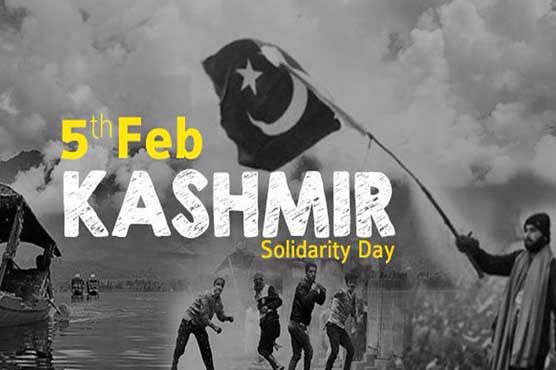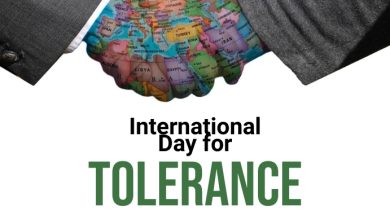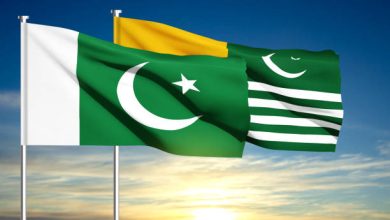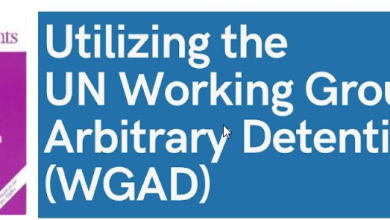 Imagine a land as magical as it is troubled. Think of vibrant green valleys kissed by clouds, snow-capped mountains whispering ancient tales, and rivers that sing songs of freedom. This is Kashmir, a paradise painted with pain. Every February 5th, Kashmir Solidarity Day brings together millions in Pakistan and beyond, provides a platform to express solidarity with the people of Kashmir and draw attention to their ongoing struggle.
Imagine a land as magical as it is troubled. Think of vibrant green valleys kissed by clouds, snow-capped mountains whispering ancient tales, and rivers that sing songs of freedom. This is Kashmir, a paradise painted with pain. Every February 5th, Kashmir Solidarity Day brings together millions in Pakistan and beyond, provides a platform to express solidarity with the people of Kashmir and draw attention to their ongoing struggle.
On this day, Pakistan remembers and honors the sacrifices of those who lost their lives in the fight for the independence of Kashmir. Beyond national sentiment, this day holds importance on a global scale due to the historical context of the Kashmir conflict, and the ongoing humanitarian issues faced by the Kashmiri people. This day is a mirror to the longstanding struggle of the Kashmiri people for self-determination and to raise their voices on an international stage.
The roots of the Kashmir conflict lie in the partition of the India Subcontinent in 1947. The disputed territory of Jammu and Kashmir, with its predominantly Muslim population, became a point of contention between India and Pakistan, leading to many wars and decades of long-lasting tensions. Subsequent wars and territorial disputes have left the region divided and left a permanent scar on the region and its people. Today, approximately 13.7 million Kashmiris live under Indian illegal occupation.
Due to increased unrest and human rights violations in IIOJK, in 1990, Qazi Hussain Ahmad of the Jamaat-e-Islami Pakistan proposed a day of national unity and support for Kashmiris. The Pakistani government adopted his suggestion and declared February 5th as Kashmir Solidarity Day. The day aims to highlight the struggles of the Kashmiri people and advocate for their right to self-determination, as promised by UN resolutions.
Since 1989 over 96,290 lives have been lost, with countless families displaced and scarred by Indian violence. There was a significant displacement, with thousands of Kashmiris becoming refugees in their land. Now think of children missing school because checkpoints block their way, or mothers clutching photos of loved ones lost in the long, silent dance of violence. Imagine the words of the women “My childhood was filled with the fear of curfews and gunshots”, and “Seeing people I knew disappear behind closed doors, never to return, is a pain that stays with you”. By sharing her childhood experiences, she brings attention to the lasting trauma that the children are facing in that environment. Her voice represents the countless Kashmiris who carry similar experiences and yearn for a brighter tomorrow.
Despite the hardships, the Kashmiri spirit remains undimmed. Cultural preservation efforts, educational initiatives, and peaceful resistance movements reveal the unwavering commitment to their heritage and identity. Renowned Kashmiri artists like Masood Hussain expressed yearning for freedom and document the silent cries for justice through art as he says “but as an artist, all you can do, is to stroke the canvas with that pain.”One can feel the pain of Kashmiri people by how much they suffered and are still suffering.
Various countries and international organizations perceive the Kashmir issue differently. While some emphasize the need for a peaceful resolution through dialogue, others express concern over human rights abuses.
Internationally, the Kashmir issue remains a point of contention, with countries divided in their perspectives. While India maintains its position of internal territorial matter, Pakistan and its allies advocate for Kashmiri self-determination. Organizations like the United Nations have called for peaceful resolution through internationally recognized mechanisms. Moreover, the world leaders have expressed concern over the humanitarian situation.
Former UN Secretary-General Kofi Annan stated, “The plight of the Kashmiri people is a matter of international concern.” Human rights groups like Amnesty International have consistently documented human rights violations in the region, urging action from the international community. Besides this, social media has become a powerful tool for amplifying the voices of Kashmiris and raising awareness about the conflict. Campaigns like #KashmirBleeds and #FreeKashmir have garnered global attention, sparking discussions and urging individuals to take action.
Kashmir Solidarity Day serves as a call to action, urging the international community to actively seek a peaceful resolution to the conflict. It serves as a reminder of the universal right to self-determination, enshrined in international law, and urges the international community to raise awareness about the complex realities of the Kashmir conflict and the human cost of the ongoing tensions. It also promotes dialogue and encourages peaceful solutions to the conflict. Moreover, it holds all parties accountable for upholding human rights and international law and it supports initiatives that empower the Kashmiri people to determine their future. Recognizing the humanitarian cost of the conflict, respecting the rights of all people, and engaging in meaningful dialogue are crucial steps towards a brighter future for the region.
It’s a day to stand in solidarity, amplify voices, and work towards a future of peace and stability for the Kashmiri people. Use your voice, raise awareness, and advocate for a peaceful resolution to the Kashmir conflict. Share your thoughts, educate others, and support organizations working for human rights and self-determination in Kashmir. Together, let us ensure that the cries for justice echo across the globe, paving the way for a brighter future for the people of Kashmir. Remember, every voice matters. Let us stand in solidarity with the Kashmiri people and amplify their call for self-determination.
(The writer is YFK Intern and MPhil Scholar at Air University, Islamabad)








